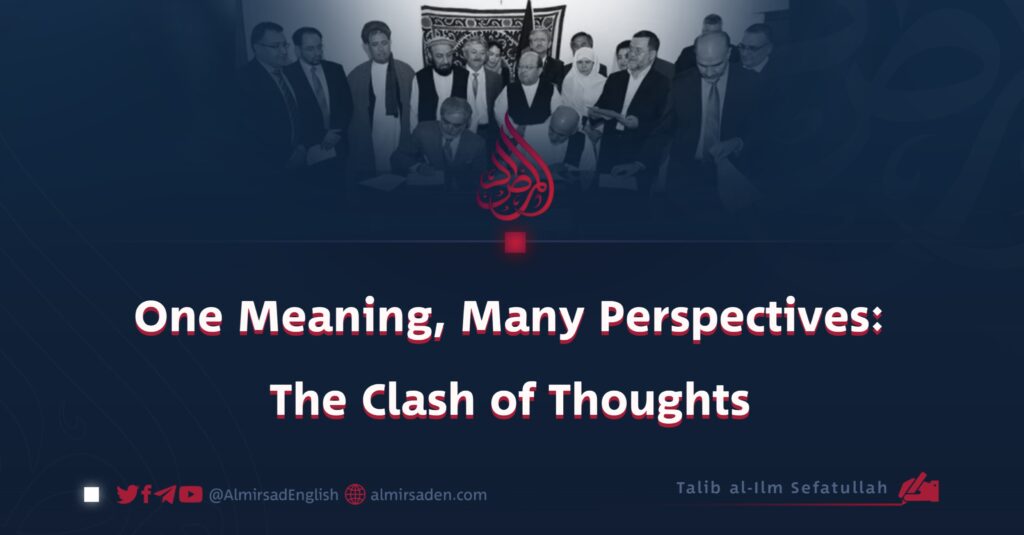Talib al-Ilm Sefatullah
In this world, the definitions of all things and their meanings are explicitly stated. Religious, linguistic, and customary words and terms have clear definitions. Each word or sentence uttered carries its own precise meaning and interpretation; however, there exists a disparity in the perspectives of those who articulate them.
For instance, the term “occupation” is defined in all dictionaries and lexicons as the act of physically and geographically taking control of a country in such a way that the people of that country come under its laws, constitution, and traditions.
Therefore, in light of this definition, it can be observed that during the time of Hazrat Uthman (may Allah be pleased with him), Muslims came to present-day Afghanistan, took control of the land of the original inhabitants, who were followers of Buddhism, and enforced their laws based on the Quran and Hadith upon the people. Today, the inhabitants are Muslims, and this is an Islamic country with customs, laws, and a constitution that is Islamic. So, does this also fall under the concept of occupation and colonialism?
No, it does not. The rationale being that although Muslims arrived here by the sword, they brought forth the sacred book of Allah, the Quran, and the teachings and guidance of the Messenger of Allah, Muhammad (PBUH), not for their personal gain. They came to lead the people from ignorance to enlightenment, from darkness to illumination, and to transition them from disbelief to Islam, which will remain a source of honor and pride for us until the Day of Judgment.
We do not label it as occupation since this religion (Islam) represents the ultimate truth. Conversely, the incursions undertaken by the British, Russians, and Americans are categorized as colonialism and oppression because their systems, customs, and modes of governance were grounded in tyranny and rebellion rather than truth, and presently they have further entrenched themselves in their deviance. Hence, we did not submit to them and instead engaged in jihad against them.
Advocates of democracy deem the American intervention and presence in Afghanistan as justified because, in their perspective, democracy is the true faith that ensures the welfare and advancement of mankind. They argue that the United States possessed the right to introduce the creed of democracy in this region, as it embodies a doctrine that upholds human rights.
Just as we, as adherents of Islam, regard it as our duty to propagate and preach Islam and its tenets, similarly, proponents of democracy perceive it as their responsibility to disseminate and impose their contemporary ideology on others. These individuals take pride in the democratic system, viewing it as a mechanism for reform and progress, and they favorably compare it with other belief systems.
